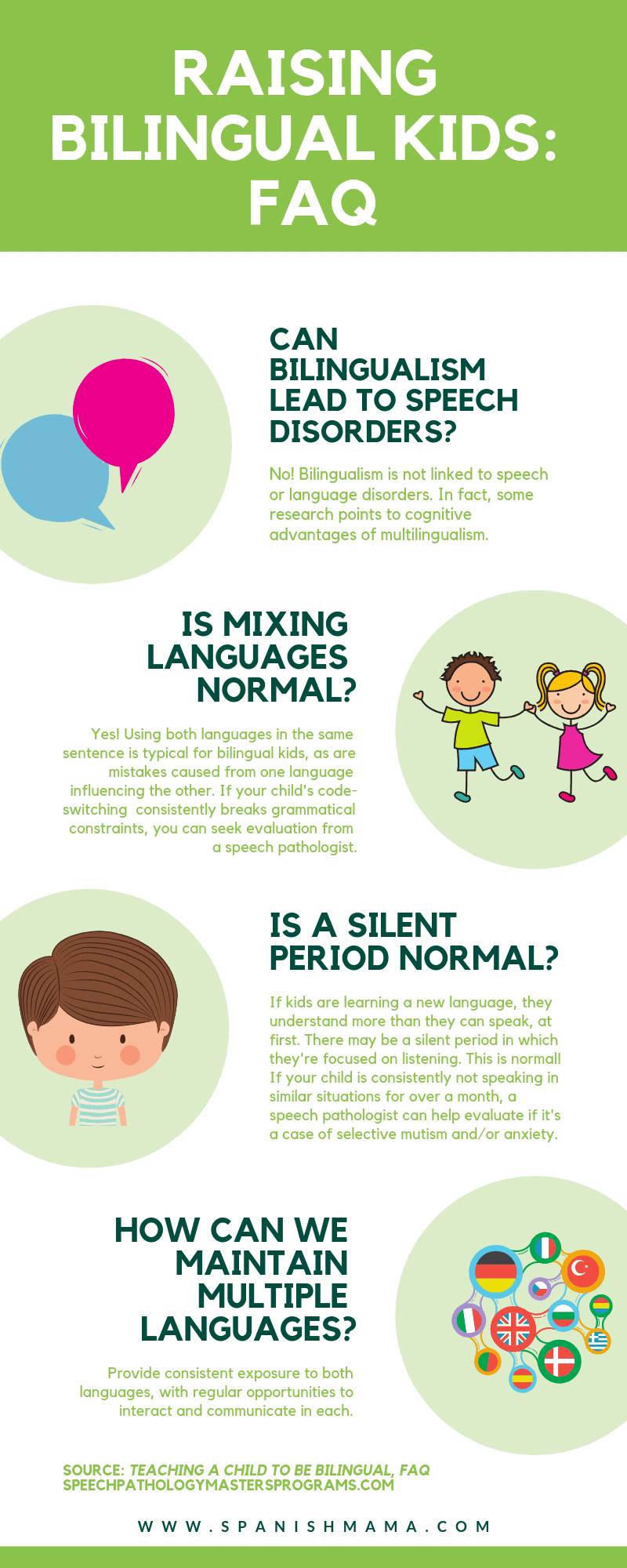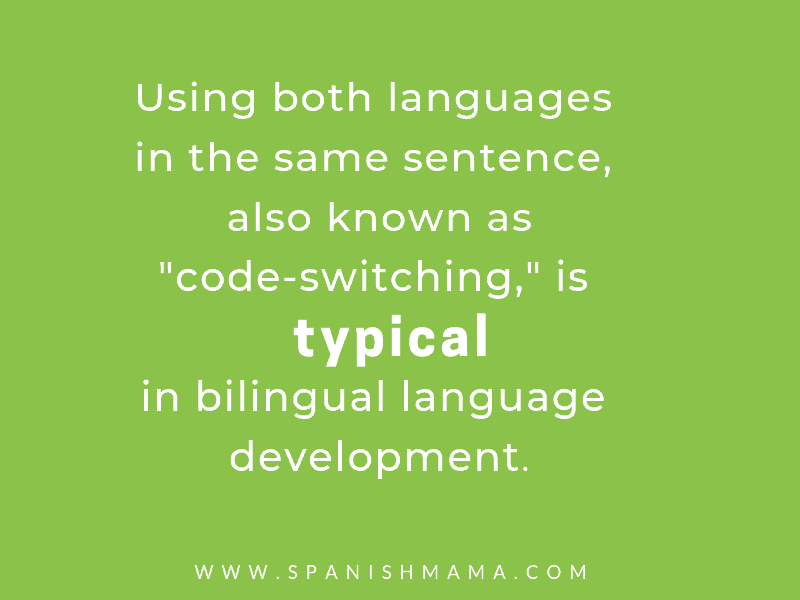What You Need To Know About Bilingual Language Development: FAQ
Inside: FAQ on bilingual language development, on what’s normal and when to seek help from a speech pathologist.
For today’s post, I’m welcoming Julie Perron from Speech Pathology Master’s Programs. Parents raising bilingual kids often have questions about what’s normal, and what’s not, in their kids’ speech development. Although this is a huge topic, here’s some insight into some of the top questions about bilingual language development.
BILINGUAL LANGUAGE DEVELOPMENT: FREQUENTLY ASKED QUESTIONS
Learning two languages as a child can be helpful in many ways. Bilingualism can help children to communicate with more people in their family and community and can even lead to cognitive benefits. If you are teaching your child multiple languages or are thinking about doing so, you almost certainly have some questions about his or her language development. Here are answers to some common questions about bilingual parenting that you may have.

Teach Kids SpanishTips to learn Spanish at home with kids: resources and ideas for learning together.
IS THERE A REASON I SHOULDN’T TEACH MY CHILD TO BE BILINGUAL?
Some parents worry that teaching their children multiple languages will confuse them or even lead to speech and language disorders, but this is not true! It is completely safe to teach your child multiple languages. In fact, some research even points to cognitive advantages among bilingual children, in addition to the benefit of knowing multiple languages itself! It is never too early to start teaching your child a second language- the earlier they start learning the sooner they will become proficient.
MY CHILD MIXES HIS LANGUAGES TOGETHER AT TIMES, IS THIS OKAY?
Using both languages in the same sentence, also known as codeswitching, is typical in bilingual language development. Codeswitching typically conforms to the grammatical structure of both of the languages being spoken and may occur into adolescence and adulthood as well. If your child is using codeswitching in a way that breaks grammatical constraints, they may have a communication disorder and you should get them evaluated by a speech-language pathologist.

Bilingual children will also mispronounce words or make other errors due to one language influencing the other. These errors are normal as long as they are mistakes and not a difficulty pronouncing a sound. If your child is having difficulty producing certain sounds, you should contact a speech pathologist.
I’M NOTICING THAT MY CHILD IS SILENT DURING SOME CONVERSATIONS, SHOULD I BE CONCERNED?
When children learn a second language but are not yet confident using it, it is common for them to undergo what is called a silent period. During this period, children listen intently as others speak the second language. This is how they develop proficiency in the language at a time where they may understand it better than they can speak it. Silence is only a concern if a child is consistently not speaking in similar situations for over a month. This could be selective mutism- a condition where anxiety prevents a child from speaking. If you suspect that your child has selective mutism, you should have them evaluated.
HOW DO I MAKE SURE MY CHILD CONTINUES TO BE ABLE TO USE EACH OF HIS OR HER LEARNED LANGUAGES?
To make sure that your child continues to be proficient in multiple languages, you must ensure that they have the opportunity to use each language regularly. If they stop speaking one of the languages, they will start to lose some of their ability to speak that language. Even as you are trying to get your child to proficiency in their second language, it is important to make sure you continue to use the primary language on a regular basis so they do not lose what they have learned.
SpeechPathologyMastersPrograms.com is a free resource that help students find information regarding master’s in speech pathology programs, and provides speech pathology information to families and communities.






